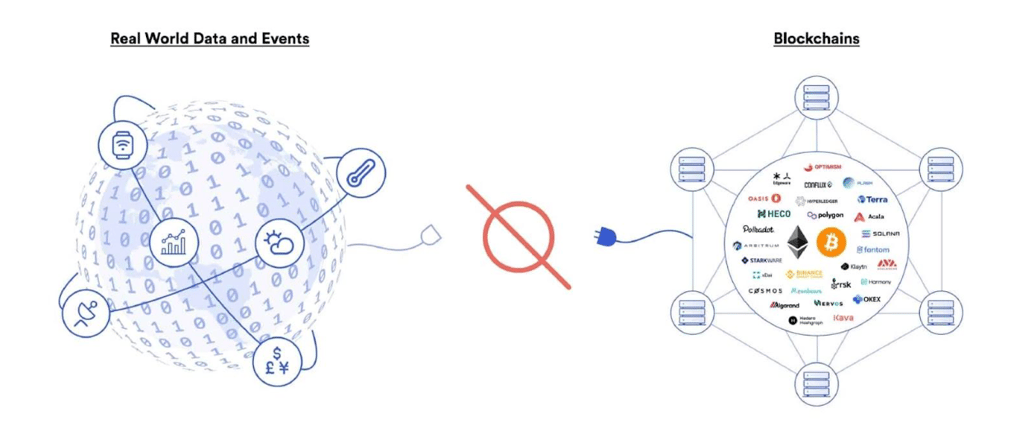The Role of Oracles in Blockchain


As blockchain technology continues to evolve, it brings about an intricate tapestry of interconnected systems, each vital for the ecosystem’s functionality and growth. One such essential component is the oracle. The role of oracles in blockchain is to serve as the bridge between blockchain and the external world, ensuring that smart contracts can operate based on real-world data. Without them, blockchains would remain insular, unable to interact with outside information—a limitation that would severely restrict their utility.
Understanding Blockchain Oracles and Their Importance
Oracles in blockchain serve as crucial intermediaries that enable smart contracts to interact with data from the outside world. They facilitate the transfer of information, such as weather conditions, stock prices, and sports scores, into blockchain networks. This data is essential for smart contracts to execute agreements based on real-world events, effectively transforming them from static scripts into dynamic applications. The capacity of oracles to bridge on-chain and off-chain data extends the functionality of blockchain systems, allowing them to perform a variety of tasks that would otherwise be impossible. The importance of oracles cannot be overstated; they are the linchpins that allow blockchain networks to interact with and respond to external realities, thereby unlocking a myriad of practical applications.
Different Types of Blockchain Oracles and Their Uses
Blockchain oracles come in various forms, each tailored to meet specific needs. Software oracles, for instance, are designed to fetch data from online sources such as APIs. This makes them ideal for integrating real-time information like stock prices or weather updates into smart contracts. On the other hand, hardware oracles capture data from the physical world through IoT devices and sensors, making them essential for applications that require environmental data or location tracking.
Another categorization includes inbound and outbound oracles. Inbound oracles deliver external data to smart contracts, allowing them to execute based on real-world events. For example, a smart contract in a decentralized finance (DeFi) application may rely on inbound oracles to receive current market prices. Outbound oracles function in the opposite manner; they send information from blockchain networks to external systems. This is particularly useful in automated systems where blockchain actions trigger events in the physical world, such as releasing funds from an escrow account once a shipment is verified.
Hybrid oracles offer a combination of these functionalities, delivering data from both online and offline sources while also providing bi-directional data flow. These are often employed in complex use cases like supply chain management, where accurate and multifaceted data is critical. Each type of oracle brings unique strengths to the table, supporting the diverse and expanding landscape of blockchain applications.
Security Concerns and Solutions with Blockchain Oracles
The integration of oracles in blockchain systems brings about essential security considerations. One major issue is the "oracle problem," where the accuracy and trustworthiness of data provided by oracles can compromise the integrity of smart contracts. To mitigate this, decentralized oracles offer a solution by aggregating data from multiple sources, reducing the risk of single-point failures. Additionally, some platforms employ cryptographic proofs and trusted execution environments to verify the authenticity and accuracy of the data being transmitted. These measures collectively help ensure that the data feeding into the blockchain remains reliable, safeguarding the execution of smart contracts.
The Impact of Oracles on Blockchain Stability
The integration of oracles into blockchain systems has a profound effect on their overall stability. Oracles serve as essential conduits for real-time data, ensuring that smart contracts can respond to external events with accuracy and timeliness. This capability enhances the reliability of blockchain applications, making them viable for a broader range of real-world scenarios.
However, the reliance on oracles also introduces unique challenges that can impact blockchain stability. One primary concern is the consistency and trustworthiness of the data supplied by these oracles. Unreliable data sources can lead to erroneous smart contract executions, undermining user trust and system integrity. To combat this, decentralized oracles aggregate information from multiple sources, minimizing the risk of data manipulation or errors.
Another consideration is the potential for latency. Delays in data transmission can hinder the performance of time-sensitive applications, particularly in fields like finance and supply chain management. Advanced oracle designs aim to mitigate these delays through optimized data-fetching protocols and faster response times, thereby supporting the seamless operation of blockchain networks.
Security measures play a critical role in maintaining the stability of blockchain systems reliant on oracles. Incorporating cryptographic proofs and trusted execution environments ensures that data remains tamper-proof from the point of origin to its final destination. These safeguards not only bolster data integrity but also enhance user confidence in the system's reliability.
By addressing these multifaceted challenges, oracles contribute significantly to the robustness of blockchain ecosystems. Their ability to bridge on-chain and off-chain worlds, coupled with advanced security and performance measures, ensures that blockchain platforms remain stable and dependable in a dynamic and interconnected digital landscape.
Choosing the Right Oracle for Your Blockchain Platform
Choosing the right oracle for your blockchain platform involves a careful evaluation of several factors tailored to your specific needs. Start by considering the type of data your smart contracts require—whether it’s real-time financial data, weather updates, or sensor information from IoT devices. The level of security and reliability necessary for your application is another critical aspect. Decentralized oracles generally offer enhanced security through data aggregation from multiple sources, minimizing the risk of inaccuracies and single-point failures.
Next, examine the oracle provider's reputation and track record. Established providers with a history of reliable performance and robust security measures are often preferable. Additionally, consider the latency requirements of your application. For time-sensitive operations, prioritize oracles known for their swift data-fetching capabilities and minimal delays.
Lastly, assess the compatibility of the oracle with your blockchain network and its scalability to meet future needs. By thoughtfully weighing these factors, you can select an oracle that not only meets your immediate requirements but also supports long-term stability and growth for your blockchain platform.
